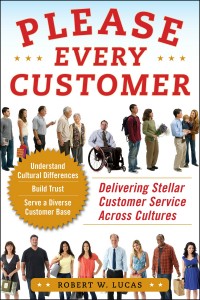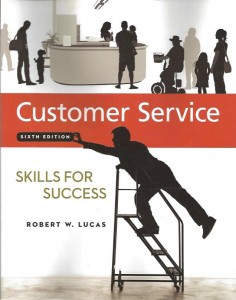Time Management Skills in A Diverse Customer Service World
Reliable time management skills in a diverse customer service world are crucial in order to take advantage of opportunities to effectively interact with customers from various cultures. For years, anthropologists and others have studied the use of time in various cultures to try to better understand why some people view it differently. Their findings can be very useful in today’s world when many customer service representatives and other employees must be concerned with delivering excellent customer service across cultures. By better understanding cultural differences related to time and applying sound time management strategies or time management tips, service providers are more likely to meet their customer’s needs, wants and expectations.
In a diverse customer service world, the perspectives that many people have of time perception are often based on religious dogma or personal and cultural beliefs. For example, in the United States where the Puritans brought ideas of efficient use of time and a focus on the future, their culture developed to where today people focus on change, moving forward at a fast pace and getting more done with less. Entire industries (e.g. fast food) have developed to support this driving mentality. The challenge is that because the United States has become such a “melting pot” of diverse people who have brought with them their own religious and cultural values, conflict with time usage sometimes erupts between people from various subcultures. An example of this within the U.S. population is that many African and Latin Americans, Middle Easterners, Native Americans, Hawaiians, and Asians have brought religious and cultural values with them that focus on revering the past or focusing on the present as opposed to the future.
As an example of how time perception differences are common, ask people from various cultures or subcultures what they perceive an acceptable time for being late to an appointment might be. You will likely receive very different responses. For example, people from Germany or Finland often pride themselves on being some of the most punctual people in the world and are normally always early and on time for meetings and social events. Late arrival is considered rude and potentially insulting. In parts of Great Britain and North America being five minutes late for a meeting might be an acceptable time, but fifteen minutes or more would definitely be considered late and possibly rude, depending on the event and the person with whom you are scheduled to meet. In the Pacific Island, Middle Eastern and many African cultures, tardiness of thirty minutes or more is perfectly acceptable for a business meeting in many instances.
Just as in business situations, if you invite international customers to a dinner meeting or social event, you can anticipate that they will arrive at different times. This is sometimes based on their cultural backgrounds and values. For example, someone from Japan or Korea might arrive half an hour early, a guest from the United States or England — five minutes early, a Honduran and Latin American might show up thirty minutes late, an Italian could be up two hours late, an Ethiopian might be even later and someone from Vietnam might not come at all. They only accepted your invitation to be polite and to avoid causing you to lose face if they said no. If you ever host such an event, make sure that you specify your expectations in writing in order to avoid confusion or embarrassment to guests. For example, your invitations might specify that dinner will be served at 7 p.m. sharp.
If you interact with customers outside your own cultural group regularly, one tip for effectively delivering customer service in a positive manner is to do research on how your customer’s from a particular culture perceive time. By raising your cultural awareness, you will be better prepared to effectively handle situations where customers are either early or late for meetings and social events. This will also prevent you from inadvertently violating a cultural norm when attending a meeting or event with your customers. The result is that you can potentially meet customer expectations, increase customer satisfaction and form more solid relationships with customers from all parts of the world through your knowledge and actions.
Source of this article: Please Every Customer: Delivering Stellar Customer Service Across Cultures.









